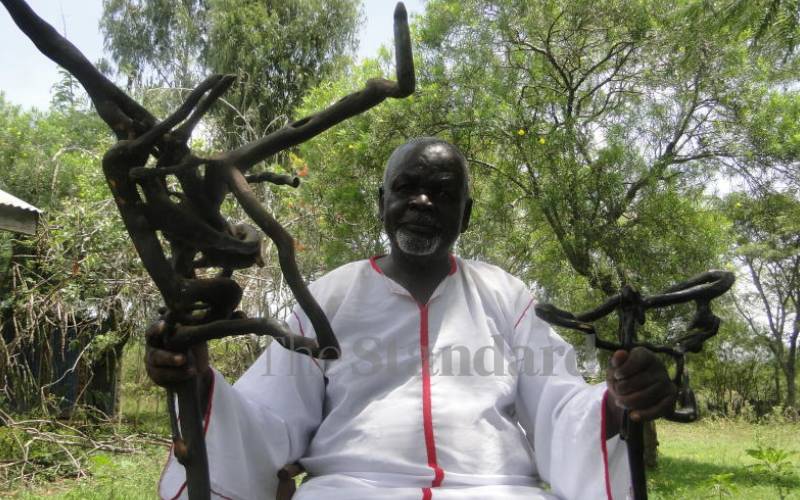×
The Standard e-Paper
Home To Bold Columnists

Mzee Thomas Achando, a grandson to Badia - a renowned magician in Yimbo. [Isaiah Gwengi, Standard]
When she lost her husband 15 years ago, Dorothy Aluoch was required to undergo cleansing, according to Luo traditions.